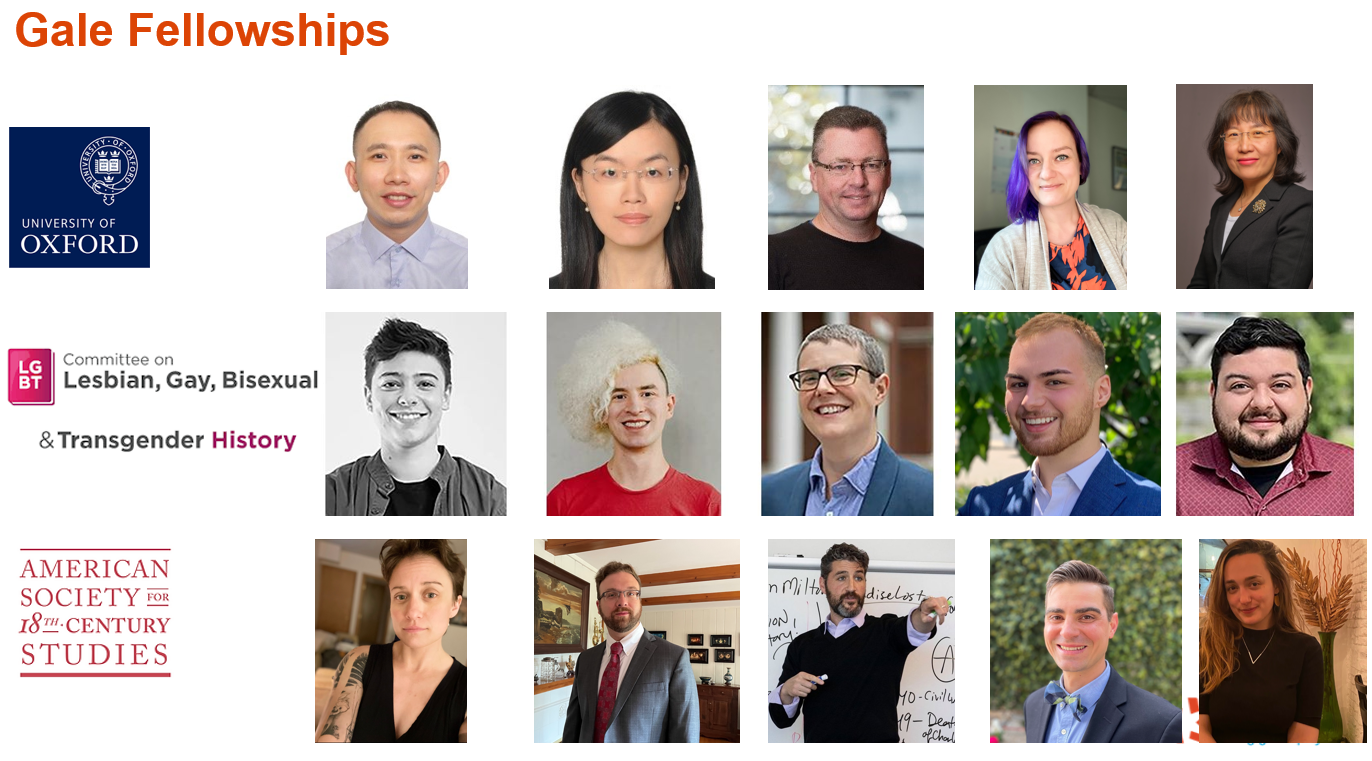| By Gale Staff |
Gale has been at the forefront of supporting digital scholarship for many years. Over the past decade, we have worked with the academic community to understand the use of Gale Primary Sources in text- and data-mining projects, and the common challenges they face. We developed Gale Digital Scholar Lab in response to these challenges and, most recently, fellowships to provide researchers with access to The Lab so they can apply new lines of inquiry to their research. In addition to providing extended access to these resources, we wanted to offer the researchers financial support at a time when arts and humanities funding is under threat. The fellowships align to Gale’s mission of expanding the possibilities of research, particularly in underrepresented or underfunded areas.
It was in this vein that we created the following fellowships:
In partnership with the American Society for Eighteenth-Century Studies (ASECS), Gale has awarded Gale-ASECS Non-Residential Fellowships to five researchers working in the area of eighteenth-century studies. In addition to funding from Gale, the scholars have access to Gale’s Eighteenth Century Collections Online (ECCO), as well as access to the Gale Digital Scholar Lab (The Lab). Using The Lab, the program provides fellows with text and data mining tools to explore ECCO and advance their work using digital humanities methods. The fellowships aim to help these scholars expand the field of eighteenth-century studies for research or teaching.
Recently we awarded fellowships to Committee on Lesbian, Gay, Bisexual & Transgender History (CLGBTH) members and Queer History Conference 2022 attendees. Through these Gale-CLGBTH Non-Residential Fellowships, we wanted to actively support the LGBTQ research community by providing fellows with financial support and access to the Archives of Sexuality and Gender and Gale Digital Scholar Lab. With Gale’s ongoing commitment to equity, diversity and inclusion (EDI) initiatives, it was important to us to get behind the LGBTQ research community in their mission to advance digital scholarship, uncovering the lives and histories of LGBTQ communities. The goal is to foster greater societal knowledge, awareness, and understanding of these communities and how they’ve developed over time, as well as how they fought—and continue to fight—for equality.
We’ve also developed a multiyear fellowships program at the University of Oxford, the Gale Scholar Asia Pacific Digital Humanities Oxford Fellowships, with the goal of encouraging emerging digital humanities scholarship in the Asia-Pacific region and progressing the contribution of non-Western and regional perspectives to the field of digital humanities research. The fellowships fund a three-month period of research at the Bodleian Libraries and the University of Oxford into a digital humanities–related topic. The first-year cohort have completed their fellowships at Oxford, and the second-year cohort will start in the new academic year. Along with access to the special collections in the Bodleian Libraries, the fellows have access to Gale Primary Sources and Gale Digital Scholar Lab to assist them with their digital humanities initiatives.
All three fellowships programs reflect our ongoing commitment to enabling digital scholarship in underrepresented or underfunded areas, empowering researchers to create new forms of digital scholarship and develop new collaborative partnerships.
Fellows top left to bottom right:
Gale Scholar Asia Pacific Digital Humanities Oxford Fellowships: Dr Tuo Chen – Nankai University, Dr. Hsuan-Ying Tu – Renmin University of China, Dr Mark Byron – University of Sydney, Dr. Terhi Nurmikko-Fuller – Australian National University, Dr. Xiurong Zhao – Renmin University of China
Gale-CLGBTH Non-Residential Fellowships: Elio Colavito – University of Toronto, Jacob Bloomfield – University of Konstanz, Jen Jack Gieseking – University of Kentucky, Trevor Ladner – Ednovate Charter Schools, Justin Salgado – The Ohio State University
Gale-ASECS Non-Residential Fellowships: Heather Heckman-McKenna – University of Missouri, Dr. Adam Kozaczk -Texas A&M International University, Jared Richman – Colorado College, Daniel Watkins – Baylor University, Sara Weston – Yale University

